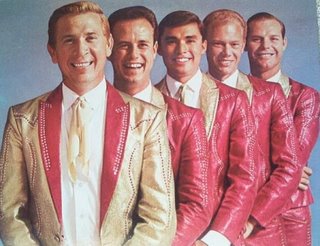
Read the novel
The Goddess
Goddess of Tomorrow
E-Mags, Group Blogs, Etc.
- National Review Online
- The Weekly Standard
- The London Spectator
- The Atlantic Online
- City Journal
- Catallarchy
The Big Boys
Libertarians
Of Great Interest
NJ and NJ Politics
All the News You Need
Meta Information
Meta Meta Information
Toons
Toons Plus
For a Great Time in the Woods
Archives
- 10/26/2003 - 11/02/2003
- 11/02/2003 - 11/09/2003
- 11/09/2003 - 11/16/2003
- 11/16/2003 - 11/23/2003
- 12/07/2003 - 12/14/2003
- 12/21/2003 - 12/28/2003
- 12/28/2003 - 01/04/2004
- 01/04/2004 - 01/11/2004
- 01/11/2004 - 01/18/2004
- 01/18/2004 - 01/25/2004
- 01/25/2004 - 02/01/2004
- 02/01/2004 - 02/08/2004
- 02/08/2004 - 02/15/2004
- 02/15/2004 - 02/22/2004
- 02/22/2004 - 02/29/2004
- 02/29/2004 - 03/07/2004
- 03/07/2004 - 03/14/2004
- 03/14/2004 - 03/21/2004
- 03/21/2004 - 03/28/2004
- 03/28/2004 - 04/04/2004
- 04/04/2004 - 04/11/2004
- 04/11/2004 - 04/18/2004
- 04/18/2004 - 04/25/2004
- 05/23/2004 - 05/30/2004
- 05/30/2004 - 06/06/2004
- 06/06/2004 - 06/13/2004
- 06/13/2004 - 06/20/2004
- 06/20/2004 - 06/27/2004
- 07/04/2004 - 07/11/2004
- 07/25/2004 - 08/01/2004
- 08/01/2004 - 08/08/2004
- 08/08/2004 - 08/15/2004
- 08/15/2004 - 08/22/2004
- 08/22/2004 - 08/29/2004
- 09/05/2004 - 09/12/2004
- 09/12/2004 - 09/19/2004
- 09/19/2004 - 09/26/2004
- 09/26/2004 - 10/03/2004
- 10/03/2004 - 10/10/2004
- 10/10/2004 - 10/17/2004
- 10/17/2004 - 10/24/2004
- 10/24/2004 - 10/31/2004
- 10/31/2004 - 11/07/2004
- 11/07/2004 - 11/14/2004
- 11/14/2004 - 11/21/2004
- 11/21/2004 - 11/28/2004
- 11/28/2004 - 12/05/2004
- 12/05/2004 - 12/12/2004
- 12/12/2004 - 12/19/2004
- 12/19/2004 - 12/26/2004
- 12/26/2004 - 01/02/2005
- 01/02/2005 - 01/09/2005
- 01/09/2005 - 01/16/2005
- 01/16/2005 - 01/23/2005
- 01/23/2005 - 01/30/2005
- 01/30/2005 - 02/06/2005
- 02/06/2005 - 02/13/2005
- 02/13/2005 - 02/20/2005
- 02/20/2005 - 02/27/2005
- 02/27/2005 - 03/06/2005
- 03/06/2005 - 03/13/2005
- 03/13/2005 - 03/20/2005
- 03/20/2005 - 03/27/2005
- 03/27/2005 - 04/03/2005
- 04/03/2005 - 04/10/2005
- 04/10/2005 - 04/17/2005
- 04/17/2005 - 04/24/2005
- 04/24/2005 - 05/01/2005
- 05/01/2005 - 05/08/2005
- 05/08/2005 - 05/15/2005
- 05/15/2005 - 05/22/2005
- 05/22/2005 - 05/29/2005
- 05/29/2005 - 06/05/2005
- 06/05/2005 - 06/12/2005
- 06/12/2005 - 06/19/2005
- 06/19/2005 - 06/26/2005
- 06/26/2005 - 07/03/2005
- 07/03/2005 - 07/10/2005
- 07/10/2005 - 07/17/2005
- 07/17/2005 - 07/24/2005
- 07/24/2005 - 07/31/2005
- 07/31/2005 - 08/07/2005
- 08/07/2005 - 08/14/2005
- 08/14/2005 - 08/21/2005
- 08/21/2005 - 08/28/2005
- 09/04/2005 - 09/11/2005
- 09/11/2005 - 09/18/2005
- 09/18/2005 - 09/25/2005
- 09/25/2005 - 10/02/2005
- 10/02/2005 - 10/09/2005
- 10/09/2005 - 10/16/2005
- 10/16/2005 - 10/23/2005
- 10/23/2005 - 10/30/2005
- 10/30/2005 - 11/06/2005
- 11/06/2005 - 11/13/2005
- 11/13/2005 - 11/20/2005
- 11/20/2005 - 11/27/2005
- 11/27/2005 - 12/04/2005
- 12/04/2005 - 12/11/2005
- 12/11/2005 - 12/18/2005
- 12/18/2005 - 12/25/2005
- 12/25/2005 - 01/01/2006
- 01/01/2006 - 01/08/2006
- 01/08/2006 - 01/15/2006
- 01/15/2006 - 01/22/2006
- 01/22/2006 - 01/29/2006
- 01/29/2006 - 02/05/2006
- 02/05/2006 - 02/12/2006
- 02/12/2006 - 02/19/2006
- 02/19/2006 - 02/26/2006
- 02/26/2006 - 03/05/2006
- 03/05/2006 - 03/12/2006
- 03/12/2006 - 03/19/2006
- 03/19/2006 - 03/26/2006
- 03/26/2006 - 04/02/2006
- 04/02/2006 - 04/09/2006
- 04/09/2006 - 04/16/2006
- 04/16/2006 - 04/23/2006
- 04/23/2006 - 04/30/2006
- 04/30/2006 - 05/07/2006
- 05/07/2006 - 05/14/2006
- 05/21/2006 - 05/28/2006
- 01/04/2009 - 01/11/2009
- 01/25/2009 - 02/01/2009
Drooling on the Pillow
Saturday, April 01, 2006
Try A Sliver Of Tongue
| My friend Nancy sent me a link to an ad for Kosher.com. I'm not sure why I like it. Maybe you can explain it to me. |
Friday, March 31, 2006
For That Terminal Geek In Your Life
 This may look like the dental impressions of my Uncle Bubba, but it's actually one of The Top 10 Weirdest Keyboards Ever according to fosfor gadgets. Some of them are a good deal stranger. |
Wednesday, March 29, 2006
Herbert Butterfield Took Me To The Dark Side
 I've mentioned before that my first presidential ballot was cast for George McGovern and my last two for George W. Bush. There are undoubtedly legions of events, realizations, people and turns of fate that contributed to my long trek across the political landscape, but two things come to mind that jarred me loose from my hardened assumptions and allowed me to begin the trip. I was waiting tables in a trendy joint on the East Side in the early eighties and making a play for one of the chefs. I thought she was cute as hell and bright as a button. Someone ran into the kitchen and announced that Reagan had been shot. The object of my affections pumped her arm in the air like a hockey player and shouted "Yes!" Well, I may have been a vaguely lefty layabout, but I knew that wasn't right and I actually felt myself shift in that moment. Not toward the right, but toward giving things a fresh look. And I happened to come across a book around the same time called The Whig Interpretation of History, by Herbert Butterfield, which can be accessed in its entirety under the link. It's a short book (or long pamphlet) but dense, written in 1931. It's premise is that most of our influential historians have been Whigs or progressives and that there is a characteristic relationship between the Whig historians and their subjects. They tend to interpret the past through the eyes of the present and they understand the present to be the end of a long series of events leading from darkness into light, from reaction to Jacobinism to liberalism, from authority to liberty and from right to left. History, in this view, is a vast Powerpoint document demonstrating the triumph of the progressive point of view. As with any post hoc, ergo prompter hoc argument, it's an easy fallacy to fall into. In broad strokes, we have moved, or, you could even say progressed fairly resolutely through the centuries towards more personal liberty and from at least an acceptance of the inevitability of central control. On the other hand, of course, during the incomprehensibly blood-soaked 20th Century, most of the power was centralized under, and most of the blood was spilt in service of, 'progressive' regimes. To Butterfield, it is the role of the polemicist, not the historian to answer the question, 'how did we achieve religious liberty?' without first understanding the reasonableness of religious persecution from a 16th century point of view. Real historical understanding is not achieved by theHe makes the case that the interposition of an agenda, consciously or not, acknowledged or not, liberal or conservative, invalidates the narrative of history. He might not argue with the analogy of history as story-telling, but he is firm against the addition of a moral at the end of the story. It seems to be assumed that in history we can haveThere is a satisfaction in finding historical vindication for one's assumptions, but there is a thrill in being led, by examination and analysis to suddenly looking through the eyes of a 12th century crusader and realize he didn't do what he did simply because he was wicked. We do tend to see analogs to our party or our convictions in earlier era, but it is a mistake to imagine they would be your allies were they to pop out of the Way-Back machine tomorrow morning. People and nations had particular reasons for what they did and those motives are entirely opaque to us without a close examination of the relationships, the personalities, the restrictions, resources and needs of the actors involved with absolutely no reference to what we would do if we were in their shoes. Once that's made as clear as possible, then you can proceed to look at the transitions and turning points. The very act of drawing that line from Luther or whomever may represent the beginning of a liberal notion through today and stringing connecting events onto that line, deliberately excludes half of the story. Perhaps in retrospect the destruction of American Indian culture was inevitable once it clashed with the technologically superior Europeans, just as, in retrospect, the annihilation of the Republican Guard was inevitable once the Marines were given the go-ahead to proceed to Baghdad. But retrospect means looking backward from the perspective of the present and from the perspective of the 16th century and early 2003, neither event was inevitable. Of course, the closer one approaches the actual events, the more uncertain seems the outcome. The Whig interpretation is the abbreviation of history by selection. This book didn't make me a right winger by any means but it was the first challenge to a way of looking at history that had become ingrained in me and it opened the door. One may be forgiven for not being too happy |
I Could Eat A Knob At Night
| Been coming to work recently listening to the Ricky Gervais Show podcasts. They did twelve half hour shows for free and have just started the second season for which they're charging a couple bucks each. You can also get the whole first season for six or seven bucks. All over at iTunes. I primarily use the music injection system to get to my Happy Place. By which I mean get away from my horrible Going To Work Place. I do love music, but the point here is to become distracted and insensate (or over-sensate, take your pick) enough to forget where I'm going and why. It works, more or less. What's happening lately, though is that I'm laughing out loud from the moment I leave my house til the moment I get to the office. Street, bus stop, bus, terminal, train, street, elevator. People look, I become undistracted, and there I am in my tumbrel again. Overall, that's  unsatisfactory, but, of course, I can't stop listening. I've got about four and a half more hours to listen to, which is about three days, then I can go back to zombieizing myself. unsatisfactory, but, of course, I can't stop listening. I've got about four and a half more hours to listen to, which is about three days, then I can go back to zombieizing myself.By the way, when did the Geico gecko start doing Ricky Gervais? |
Monday, March 27, 2006
What If You Get Hammered and Then Take a Nap?
| I'm pleased and proud to announce that Sluggo Needs A Nap is the number one choice of 430,886 hits when MSN Search looks for "bar to take a nap in". I just think it's curious that whoever needs this information took such a high tech route. I altered his search to 'bar to get hammered in' and was nowhere to be seen. |
Sandy Beach Towel and My Behind: Perfect Together
| Roberto at DynamoBuzz alerted me to a web site set up to promote the Jersey Shore. If you click on "Find a Play Therapy That's Right For You" they ask you a series of questions and then suggest some shore towns you might like. I got Cape May, Point Pleasant and Beach Haven. Being an old fart who would just as soon sit on the beach with a cold beer for two weeks, I'd say they hit my sweet spot. Probably my three favorite places in Jersey to spend more than a day. |
Buck Owens, R.I.P.
 I didn't know Buck Owens had passed away until I read about it at 2Blowhards. Michael Blowhard has a nice tribute to him over there. My first date with the Goddess was a Dwight Yoakam comcert and Buck Owens showed up to do the Streets of Bakersfield duet. That's Mr. Owens and the Buckaroos to the right. |
Sunday, March 26, 2006
First Jammer Out Of The Pack
 We arrived at the appointed hour and the clan was gathering. The clan being anyone with a soft spot for Sheilas on Wheelas. Opening night for the Penn Jersey She Devils roller derby league. After reading the promotional material I was going back and forth on who to root for. The Sadistic Sisters were appealing in their fetching pink and black ensembles. I liked the Fallen Angel, too, in all black with with little wings affixed to their backs. After both teams had done their warm-ups, though, I settled on the Fallen Angles. Something about their fish-net stockings. And it was an interesting crowd. I'm not sure I can think of another activity with the same mix: punk, post-punk, sporting, goth, nostalgia, working class, camp. There's a Sapphic element, of course, if only in the fevered brains of the many adolescent boys present who's only intimate contact with women thus far has taken the form of slick paper monthlies. There was also a beautiful little boy sitting on his dads shoulders who waved frantically to his mother every time she skated past. And Metal Momma would wave back and then drill her elbow into a Sadistic Sweetheart's hip. The Goddess is a wreck-ghoul. I have to slow way down when we pass an accident, so the appeal to her is obvious. Grace loves women's athletics and she loves skating and she loves  anything odd and different. And she also scored a t-shirt. For me there were the fish-net stockings. anything odd and different. And she also scored a t-shirt. For me there were the fish-net stockings.Despite character names like Classy Chassis and Kandi KaBoom, this isn't pro wrestling, by the way. The competition was real and the one fight that broke out while I was there was real. If two large, attractive, booted, armored and sweating women grappling and punching each other five feet away from you doesn't stir you in a fundamental way, perhaps you should return to Hunter-Gatherer Tech. This was Robert Crumb heaven. I met with Gregor of What A Sad Old Goth briefly before the event started. Gregor, along with his partner, Ken Sikes, is the proprietor of this wonderful circus, so he was in something of a daze handling the hundreds of details still dancing in the air. He's such a sweet guy and he looked very happy to be finally getting things off the ground. Here's hoping it won't be long before they get their own cable channel. Picture stolen from Gregor's blog. |
